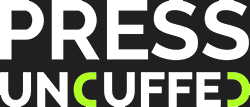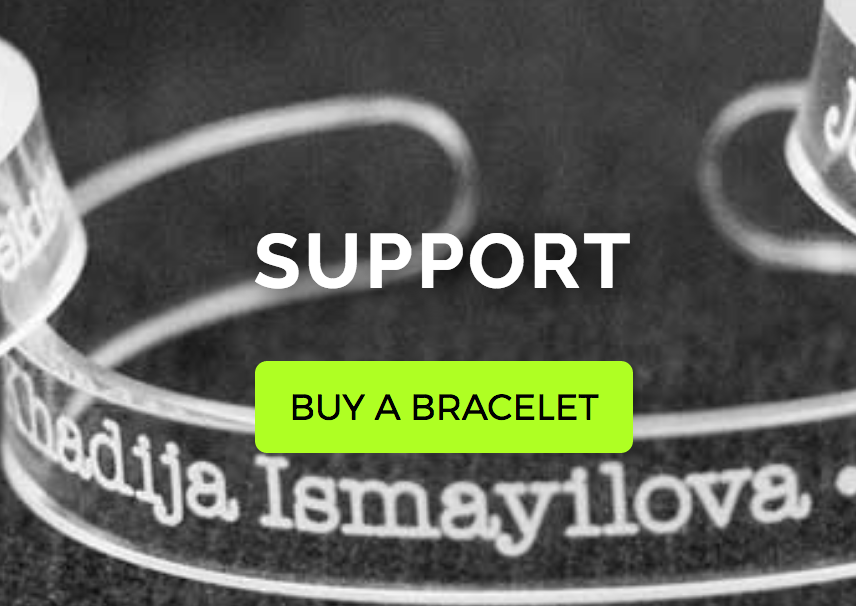Turkey’s star investigative reporter imprisoned for second time

COLLEGE PARK, Maryland – Just months after returning home from self-imposed exile in London, one of Turkey’s most accomplished investigative reporters rose to address a packed, stifling hot Istanbul courtroom, and refused to defend his writings, the state’s main evidence against him as an alleged terrorist supporter.
“This is not a statement for my defense, because I consider doing so an insult to journalism and to the ethical values of my profession,” Ahmet Şık, a reporter for Cumhuriyet, Turkey’s most venerable independent newspaper, said at his July 26 trial. “Because journalism is not a crime.”
After earlier arresting more than a dozen other top employees at Cumhuriyet, authorities arrested Şık as well. He is one more than 150 Turkish journalists jailed since an attempted coup in July 2016, which experts say has brought the country down a dark path to authoritarianism.
These imprisonments are “a fight between wisdom and ignorance,” Akin Olgun, a former Turkish journalist in exile in London, told Capital News Service. “This fight has always been there…but it has never been this reckless and daring.”
Şık was previously jailed for more than a year in 2011 for investigating how the Gülenist movement, then an ally of Recep Tayyip Erdogan’s ruling Justice and Development Party, rose to power. Now, prosecutors are accusing Şık of supporting the Gulenist movement, which it has labelled a terrorist organization. The United States does not consider the movement a terrorist organization.
Jailed on terrorism charges
While most of his colleagues have been released, Şık and three other Cumhuriyet employees remain in Silivri Prison, the largest prison complex in Europe and located about an hour outside of Istanbul.
Prosecutors cited as evidence of terrorist links a 2015 article by Şık that quoted a top official of the Kurdistan Workers’ Party, also known as the PKK. The government deems the PKK a terrorist organization, as does the United States.
Prosecutors also referenced seven tweets from 2015 and 2016. In one tweet, Şık called the government “murderers.” According to Turkey, the tweets were not legitimate media activity, but rather a method of supporting terrorist organizations.
State officials said the charges were meant to find a balance between freedom of expression and the right of the state to defend itself — in this case against an organization that uses violence, including bombings, in an attempt to achieve an independent Kurdish state. “There are many states and governments…in history,” an indictment document obtained by CNS reads, that “eventually collapsed (from) being worn down in the name of criticism.”
Turkish embassy officials in Washington declined to comment on a list of questions sent by CNS for this article.
An assault on independent journalism
Şık’s supporters see the case as a perversion of justice and an attack on independent journalism.
Abandoning the belief that a fair and impartial trial is possible in Turkey, many of his supporters are seeking his release by lobbying multilateral European bodies, such as the European Union.
Nils Muižnieks, the Council of Europe’s Commissioner for Human Rights, intervened in Şık’s case in October.
“Journalists had been widely targeted by spurious prosecutions and lawsuits, disparaging statements by high ranking officials and even physical attacks and violence, all of which had a chilling effect on the climate for their legitimate and vital work,” he reported.
He cited pre-coup statistics from Turkey’s Ministry of Justice that showed an increasingly prosecutorial government. Counterterrorism-related offenses increased three-fold from 2014 to 2015.
The number of criminal cases for insulting the president jumped from 85 in 2014 to 1,540 in 2015. The latest pre-coup numbers for 2016 show Turkey on pace for more than 2,700 such criminal cases for that year.
“There is currently a clear pattern of suppressing legitimate dissenting views in Turkey and that judicial action targeting individuals and groups expressing those views is an integral part of this pattern,” Muižnieks concluded.
History of press restrictions
While Turkey has had historic press freedom problems, the International Press Institute’s Steven M. Ellis said today is a particularly troubling time.
Between roughly 2007 to 2011, then-Prime Minister Recep Tayyip Erdogan used tax and regulatory authorities to weaken critical media outlets, Ellis told CNS.* By 2011, the state was jailing large numbers of journalists — Sik being one of them — on charges of distributing propaganda.
When the Gülenists fell out of favor with Erdogan’s ruling AKP party in 2013, many journalists were released, although economic censorship and criminal defamation remained a tactic. Since the coup attempt in July 2016, broad anti-terror laws have allowed the government to once again jail journalists.
Şık was the middle child of three boys, born in Adana, Turkey in 1970.
Despite living in poverty, their father often brought newspapers and magazines home for the boys, his brother Bülent Şık told CNS. His brother described Şık as an attentive, talkative child.
Şık got his start in journalism while at university in the 1990s, working for Radikal, a Turkish newspaper.
He gained a reputation for his human rights coverage, reporting on judges, prison raids, corruption scandals, oppression and unsolved crimes said Gökhan Tan, a former magazine editor and now a journalism instructor at Istanbul Bilgi University.
Turkish journalist Timur Soykan worked alongside Şık at Radikal and said Şık covered unpopular subjects and was constantly threatened by authorities. “He was a journalist with a conscience,” Soykan told CNS. “For this reason, he was punished unjustly.”
A reprieve and a new arrest
In March 2011, police searched Şık’s home and arrested him, claiming he was distributing propaganda via his new book, which detailed how the Gülenist movement gained political and judicial power.
He was released from that trial in March 2012 after the Council of Europe determined the case violated the European Convention on Human Rights due to unnecessary pre-trial detention. Now, he finds himself in the same prison once again.
Communications at the Silivri Prison are strictly controlled. Some newspapers and books are banned. Visits with family and lawyers are limited.
“Being in my situation is like being awoken from your sleep in a place that you are completely foreign to,” Şık wrote in an open letter from prison in March. “You feel deaf although you can hear everything, you feel blind although you can see everything, and you feel muted although you can explain everything. This is where I’m at right now.”
In his opening court statement, Şık said his professional goal has been “to disturb each and every seat of power,” and that he considers the government’s persecution of him ”as a medal of honor.”
Şık’s trial will resume on Christmas Day, his 362nd day in prison.
Campaign
About this Site
Pressuncuffed.org seeks to encourage and promote rigorous student reporting, scholarly research and debate on the role of, and obstacles to, independent journalism in the United States and abroad. Our website features reporting by University of Maryland students about press freedom in the United States and abroad. It also offers resources to instructors elsewhere who may want to teach classes or hold workshops on this theme. In the near future, this site will become a place for student work from around the country and abroad.
Dana Priest, two-time Pulitzer Prize winner at The Washington Post and Knight Chair in Public Affairs Journalism at the University of Maryland.


